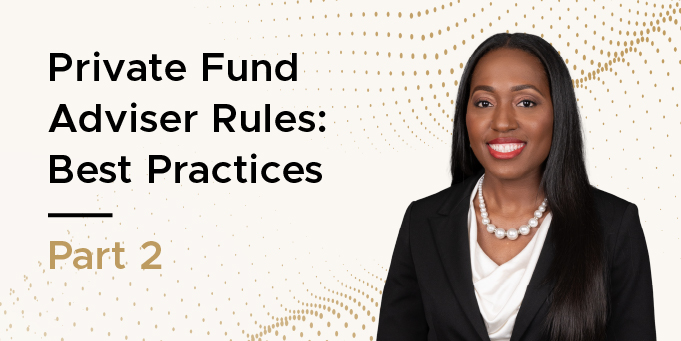
How Does Completing a Venture Round Change a Company?
- Published
- Aug 25, 2021
- By
- Kushal Dagli
- Topics
- Share
Completing an initial venture capital (VC) funding round is a huge milestone for any entrepreneur since a start-up company requires capital for many reasons including product development, talent procurement and ordinary working capital purposes. Naturally, at an early stage (seed stage or pre-seed stage), getting funding takes a toll on the founders, especially when the founders are new to the start-up and venture capital eco-system. In addition, the coronavirus pandemic since March 2020 has led to additional challenges for entrepreneurs when reaching out to VCs for raising capital. However, during the past year and throughout the pandemic, VCs have invested record amounts in companies. Apparently, virtual meetings have not stopped VCs from being very active investors.
Before making a pitch, founders must determine how much funding is necessary, what the funds will be used for, the company’s structure, their ownership in the company, exit plan and estimated timeline on the progress milestones.
- The process to get the first check can be arduous and extremely time consuming. Typically, an entrepreneur has to pitch to many VCs before getting that first check. It is sometimes said that a founder’s toughest job is fundraising.
- The founders should be aware of the difference between the capital committed by the investors versus the amount received from the investors. Especially after March 2020 and throughout the impact of COVID-19, many committed deals were either deferred, re-negotiated, or canceled. Hence, the founders are advised to have a backup plan to tackle unexpected circumstances.
When a VC invests in a company, besides dilution, an entrepreneur will generally experience numerous changes.
- Favorable Changes to the Company
- The receipt of the funds from the VC is always exciting for the founders as it enables them to build out the product and a strong team.
- The initial funding from the VCs attracts attention from other investors, who might start to track the company and possibly invest in later rounds.
- Another positive aspect for the company is that once the company receives funding from the VCs, the company now has access to an additional network of contacts that the VC may have.
- The additional capital enables the founders to accelerate product development and growth.
- The initial funding round becomes the basis for determining the valuation of the company and on many occasions forms the starting point for subsequent financing rounds.
- Governance Changes May Require Special Attention
Reporting and Communications- When the founders are dealing with the VCs for the first time (or with any new investors), building trust becomes critical. It is extremely important to have regular communication through either formal meetings or an informal chat. This is one of the significant changes that the founders would experience; the investors generally expect regular discussion about two elements: a) progress of the project and b) financial information. It is very important to provide investors with the good news as well as the not-so-good news.
- Progress of the Project: The project development reporting entails a plan and timeline about the progress of the project, significant changes to the production team, and any milestones that the company has achieved. The investors will want to see a detailed strategy and action plan for the next two-to-three years.
- Financial Information: The financial information includes the budget for at least the next two years, the capital deployment schedule and a cash flow forecast. The worst thing that can happen to an entrepreneur is to run out of cash.
- In the initial phase of the company life cycle, the founders concentrate more on developing their product, and less on the importance of keeping the books and records up-to-date. This is a common mistake amongst founders, which later adds more time and cost to compile all the information and present it to the VCs. It is highly recommended that founders give reasonable attention to the recording of financial information. This can be done by hiring a competent chief financial officer (CFO) or engaging an outsourced CFO, who oversees the financial reporting regularly. Generally, when the company is at its seed stage, the founders engage an outsourced CFO who oversees the company's accounting, budget, and annual tax matters. During the seed stage, it is also worthwhile to engage a competent accounting firm that can assist in providing the tax consultation services and an attorney who can assist with all legal matters.
- For any significant events -- such as potential mergers and acquisitions or entering a partnership -- the founders are often required to get investors' prior approval depending upon the structure and term sheet.
- Discussion about exit strategies may not happen at an early stage; however, at some point, the VCs would look for an exit plan.
- When the founders are dealing with the VCs for the first time (or with any new investors), building trust becomes critical. It is extremely important to have regular communication through either formal meetings or an informal chat. This is one of the significant changes that the founders would experience; the investors generally expect regular discussion about two elements: a) progress of the project and b) financial information. It is very important to provide investors with the good news as well as the not-so-good news.
Timely reporting to investors is one of the significant changes that the founders will experience after VCs become their shareholders. The VC fund will circulate the information about the progress of their portfolio companies with their limited partners on a regular basis. This is the reason VCs expect continuous communication from the start-up companies.
Pressure
-
- The VC investment strategy is to invest at an early stage with the aim to achieve a high-scale return as soon as possible. Hence, when the investment is made, the clock starts ticking for the company to demonstrate success. The founders feel a lot of pressure and at times make hasty decisions that affect growth.
- Another situation that adds pressure on the founders is the micromanagement by the VC. When the investor doesn't get enough information or the progress is below expectation, the VC tends to get more involved in the company’s activities.
The most stressful and potentially detrimental aspect of seeking venture funds is the sacrifice made in ownership and decision making. Most VCs trade funding for a spot on the board or part ownership of the company.
Conclusion
VC funding has both pros and cons; hence, the founders are advised to evaluate every aspect. At the end, the success of the start-up company largely depends on the vision of the founders, the size of the problem that entrepreneurs are trying to solve, their ability to accept the changes successfully, and most importantly, being transparent with the investors. With the VC’s investment, there is a high probability of certain changes affecting strategy, decision-making processes, etc. The founders and the VCs can have a strong long-term relationship only when both parties work as a team for the common interest- the growth of the Company!
Our Current Issue: Q3 2021
What's on Your Mind?
Start a conversation with Kushal
Receive the latest business insights, analysis, and perspectives from EisnerAmper professionals.











